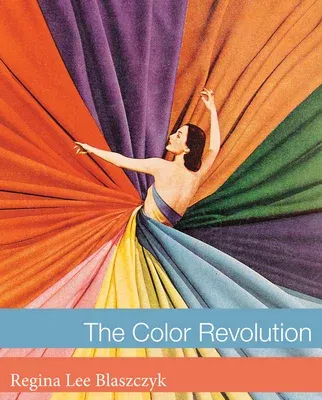A history of color and commerce from haute couture to automobile
showrooms to interior design.
When the fashion industry declares that lime green is the new black, or
instructs us to "think pink!," it is not the result of a backroom deal
forged by a secretive cabal of fashion journalists, designers,
manufacturers, and the editor of Vogue. It is the latest development
of a color revolution that has been unfolding for more than a century.
In this book, the award-winning historian Regina Lee Blaszczyk traces
the relationship of color and commerce, from haute couture to automobile
showrooms to interior design, describing the often unrecognized role of
the color profession in consumer culture.
Blaszczyk examines the evolution of the color profession from 1850 to
1970, telling the stories of innovators who managed the color cornucopia
that modern artificial dyes and pigments made possible. These "color
stylists," "color forecasters," and "color engineers" helped
corporations understand the art of illusion and the psychology of color.
Blaszczyk describes the strategic burst of color that took place in the
1920s, when General Motors introduced a bright blue sedan to compete
with Ford's all-black Model T and when housewares became available in a
range of brilliant hues. She explains the process of color
forecasting--not a conspiracy to manipulate hapless consumers but a
careful reading of cultural trends and consumer taste. And she shows how
color information flowed from the fashion houses of Paris to textile
mills in New Jersey.
Today professional colorists are part of design management teams at such
global corporations as Hilton, Disney, and Toyota. The Color
Revolution tells the history of how colorists help industry capture the
hearts and dollars of consumers.

